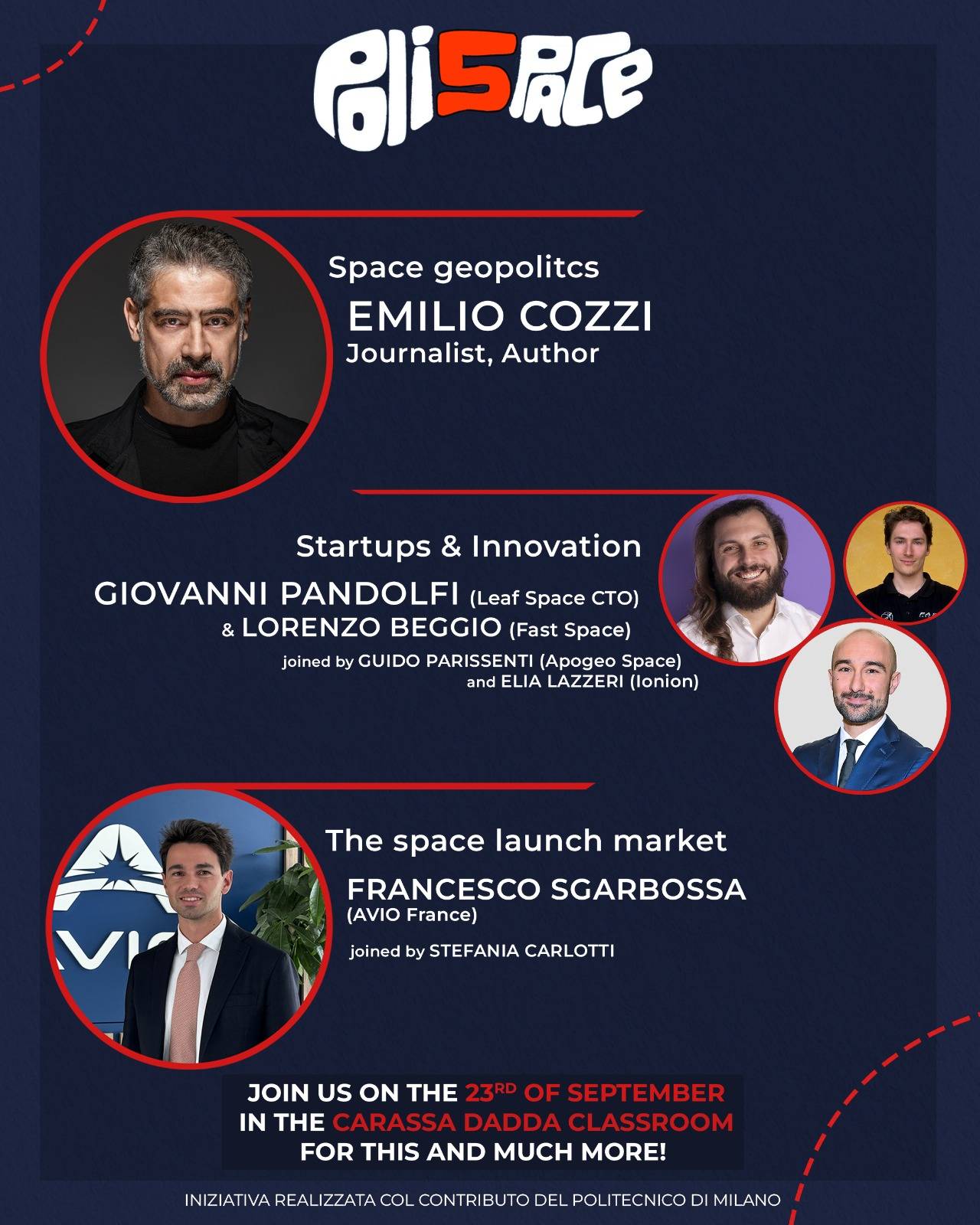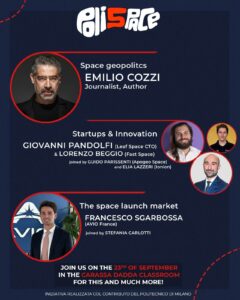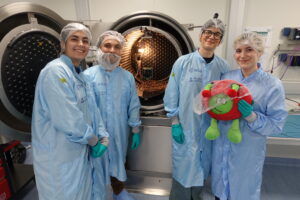Event Details:
Panel 1: The Geopolitics of Space
The opening panel, “The Geopolitics of Space,” will be led by Emilio Cozzi, a prominent Italian journalist and science communicator specializing in space. Cozzi holds several directorial and hosting positions, including for Forbes Italia and Sky, and has written for numerous major Italian publications. He is also an author and scientific consultant. His latest book, Geopolitica dello Spazio, explores the evolution of space activities, the rise of private companies, and key concepts like astropolitics and the new space economy.
Panel 2: Startups and Innovation
The second panel will shift focus to the architects of Europe’s newspace era, spotlighting the startups actively redefining the continental space economy. Ventures such as IONION, FAST Aerospace, Leaf Space, and Apogeo Space will present their disruptive technologies and forward-thinking visions, illustrating how innovation is making space more accessible.
At the core of the digital infrastructure is IONION, a venture founded by minds from the Politecnico di Milano. The company develops secure, high-performance processors using RISC-V technology for critical sectors including aerospace and automotive. As a member of the ESA Business Incubation Centre, IONION is poised to transform the semiconductor industry with its resilient, customizable solutions.
Tackling the challenge of launch, FAST Aerospace, established in 2024 by five young engineers, is engineering HyperDart. This supersonic launch system is designed to deploy small satellites from conventional airports. With 95% reusability, it dramatically lowers infrastructure costs and environmental footprint, enabling a more agile and sustainable path to orbit.
Providing the vital link to assets in space is Leaf Space. Growing from a small 2014 project, it is now a leading European Ground Segment as a Service (GSaaS) provider. Leaf Space operates a global network of 36 ground stations, offering dependable satellite connectivity that empowers a burgeoning constellation market through its LEAF LINE service.
Finally, Apogeo Space, founded in 2015, is constructing Italy’s first private LEO satellite constellation to deliver affordable IoT telecommunication services across the globe. By linking low-power devices in remote areas, the company is democratizing satellite communications, enabling industries everywhere to innovate with space-based solutions.
Panel 3: The European Launch Market
The final panel will focus on Europe’s role in the global race for launch services, featuring presentations from Avio, alongside an academic perspective from the Aerospace Department (DAER) represented by Professor Stefania Carlotti.
Avio, a leading company in space propulsion, will present its competitive solutions for launching institutional, governmental, and commercial payloads into Earth orbit through its Vega rocket family, and discuss the recent transfer of Vega C launch operations, marking a significant step in enhancing Europe’s independent access to space.
PoliSpace Student Projects
Between panels, PoliSpace members will showcase their latest student-led projects:
- 6S CubeSat: A student-made single-unit satellite designed for solar cells and structural battery testing in space, aiming to investigate power generation and storage in space.
- MEEVA-V2: An advanced medical equipment system for extravehicular activities, including a vest with integrated sensors and cooling systems, a helmet with electronics and telecommunication systems, and psychological self-assessment evaluation tools.
- Rover Kairos: A rover developed for the European Rover Challenge, created by [R]overTech, a student team from Politecnico di Milano. The rover features a robotic arm and drone, developed in collaboration with AEA, the association of Automation Engineering students. The team aims to engage high school students and make their research publicly accessible.
These projects showcase hands-on innovation, collaboration and research excellence, highlighting the PoliSpace and Politecnico di Milano space community.
How to participate:
Admission to the event is free of charge; however, please be aware that space is limited. To secure your attendance, please reserve your seat now by clicking the button below.





